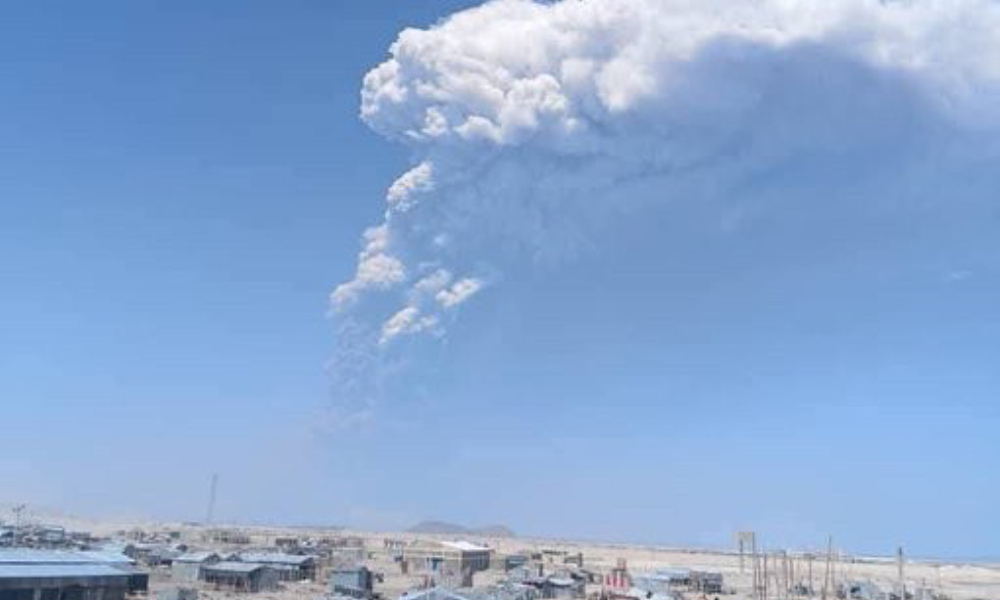World
Ethiopian volcano erupts for first time in thousands of years

A volcanic eruption in northeastern Ethiopia sent a large ash plume toward Yemen and Oman, according to officials and experts. No eruptions have been recorded at the volcano in 10,000 years.
The eruption at the Hayli Gubbi volcano began at around 8:30 a.m. UTC on Sunday, according to an advisory from the Toulouse Volcanic Ash Advisory Center (VAAC). Explosive activity continued through the afternoon, with ash rising to about 45,000 feet (13.7 km).
As of the latest VAAC advisory, the eruption was reported to have stopped.
Earlier in the day, analysts with GeologyHub, an independent volcanic monitoring group, notified the VAAC after detecting a rapidly growing plume. Officials confirmed the eruption after receiving the alert.
VAAC maps released on Sunday showed lower-level ash drifting toward Djibouti and Yemen. Higher-altitude ash was forecast to move east across Oman and into the Arabian Sea, while some upper-level ash was expected to drift farther northeast toward parts of Iran, Pakistan and India.
Hayli Gubbi is located southeast of the Erta Ale volcanic range in the Afar Rift, one of the most volcanically active areas in East Africa. Although the region has frequent volcanic activity, volcanologist Simon Carn said there is no evidence that Hayli Gubbi has erupted at any time during the Holocene period.
No impacts on aviation or nearby communities were immediately confirmed. VAAC Toulouse said additional updates will be issued as new satellite data becomes available.
BREAKING: Significant Eruption Reported in Afar, Ethiopia 🌋
— Volcaholic 🌋 (@volcaholic1) November 23, 2025
Urgent reports this morning indicate a significant volcanic explosion in the Afar region, either at Ali Bagu (Amaytole) or possibly Erta Ale itself. Early information suggests the eruption may be located between… pic.twitter.com/ChwmyT9vDZ

-

 Legal6 days ago
Legal6 days agoMichigan man JD Vance sentenced to 2 years for threatening Trump and JD Vance
-

 Politics1 week ago
Politics1 week agoU.S. to designate Maduro-linked Cartel de los Soles as terrorist organization
-

 Health7 days ago
Health7 days agoCambodia reports fatal H5N1 bird flu case in 22-year-old man
-

 World4 days ago
World4 days agoHurricane Melissa registered 252 mph wind gust, breaking global record
-

 Legal4 days ago
Legal4 days agoWoman in critical condition after being set on fire on Chicago train
-

 Politics7 days ago
Politics7 days agoEpstein survivors release PSA calling on Congress to release all files
-

 Legal4 days ago
Legal4 days ago1 dead, 2 injured in shooting at Dallas Walmart parking lot
-

 Legal3 days ago
Legal3 days agoSuspect in San Diego stabbing shot by authorities after fleeing into Mexico




